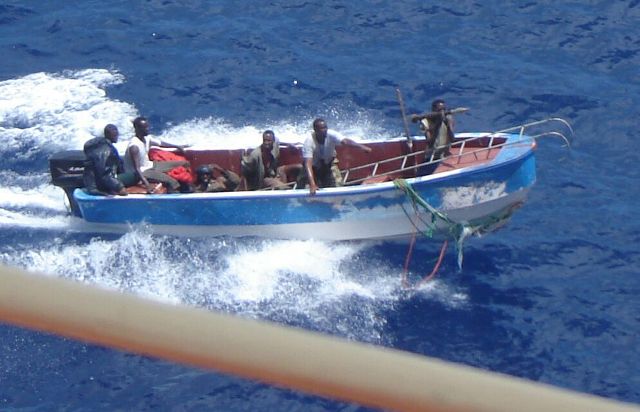Photo: IMO
By Ilya Gridneff
(Bloomberg) — Piracy that caused havoc to international shipping off Somalia’s coast over the past decade may return if illegal foreign fishing, worth an annual $306 million, continues at its current pace, according to a new report.
Local Somali fishermen, who earn $58 million per year, are angry about fishing by vessels from nations including Iran, Yemen, Egypt and Spain, Secure Fisheries, a Colorado-based program of the One Earth Future Foundation, said in the report. Growing local resentment risks a revival of the piracy epidemic that roiled the region from about 2001 to 2012, the group said.
“There is a real danger of the whole piracy cycle starting all over again,” John Steed, Secure Fisheries’ regional manager, said in a statement. “Illegal fishing was the pretext used by criminal gangs to shift from protectionism to armed robbery and piracy. Now the situation is back where it was.”
Reports of piracy have declined since 2008, helped in part by the European Union’s anti-piracy mission, known as EU Navfor. Somali pirates hijacked the fewest merchants ships since 2004 in 2013, as naval patrols and armed guards helped repel the attacks, the International Maritime Bureau said in January last year.
Civil War
Somalia has been embroiled in civil war since the ousting of dictator Mohamed Siad Barre in 1991 and its institutions have largely collapsed. The country’s president, Hassan Sheikh Mohamoud, is seeking to attract investors as its army, supported by African Union peacekeepers, pushes back al-Qaeda-linked militants from the country’s main urban areas.
The waters off Somalia’s 3,205-kilometer (1,992 mile) coastline are rich in species that include yellowfin and longtail tuna, Spanish mackerel, sardines and lobsters, according to the United Nations Food and Agriculture Organization, or FAO.
The number of foreign fleets fishing illegally in the region has increased 20 times since 1981, and they’re extracting so much that fish stocks are depleting rapidly, according to the report. Annual catches of 132,000 metric tons by unregistered or illegal foreign boats are more than three times the 40,000 tons caught by local fishermen.
“The Somali government currently lacks infrastructure to monitor, police, and protect its maritime domain and foreign vessels are taking full advantage,” Secure Fisheries said, urging efforts to better secure the waters and promote the domestic fishing industry.
FAO in Somalia is working with federal and regional ministries, donors and other stakeholders to help the country eliminate illegal fishing and manage its marine resources sustainably, agency representative Richard Trenchard said in an e-mailed response to questions.
“Reports such as this help draw attention to these critical issues and we welcome the wider debate they stimulate,” he said.
©2015 Bloomberg News

 Join The Club
Join The Club











